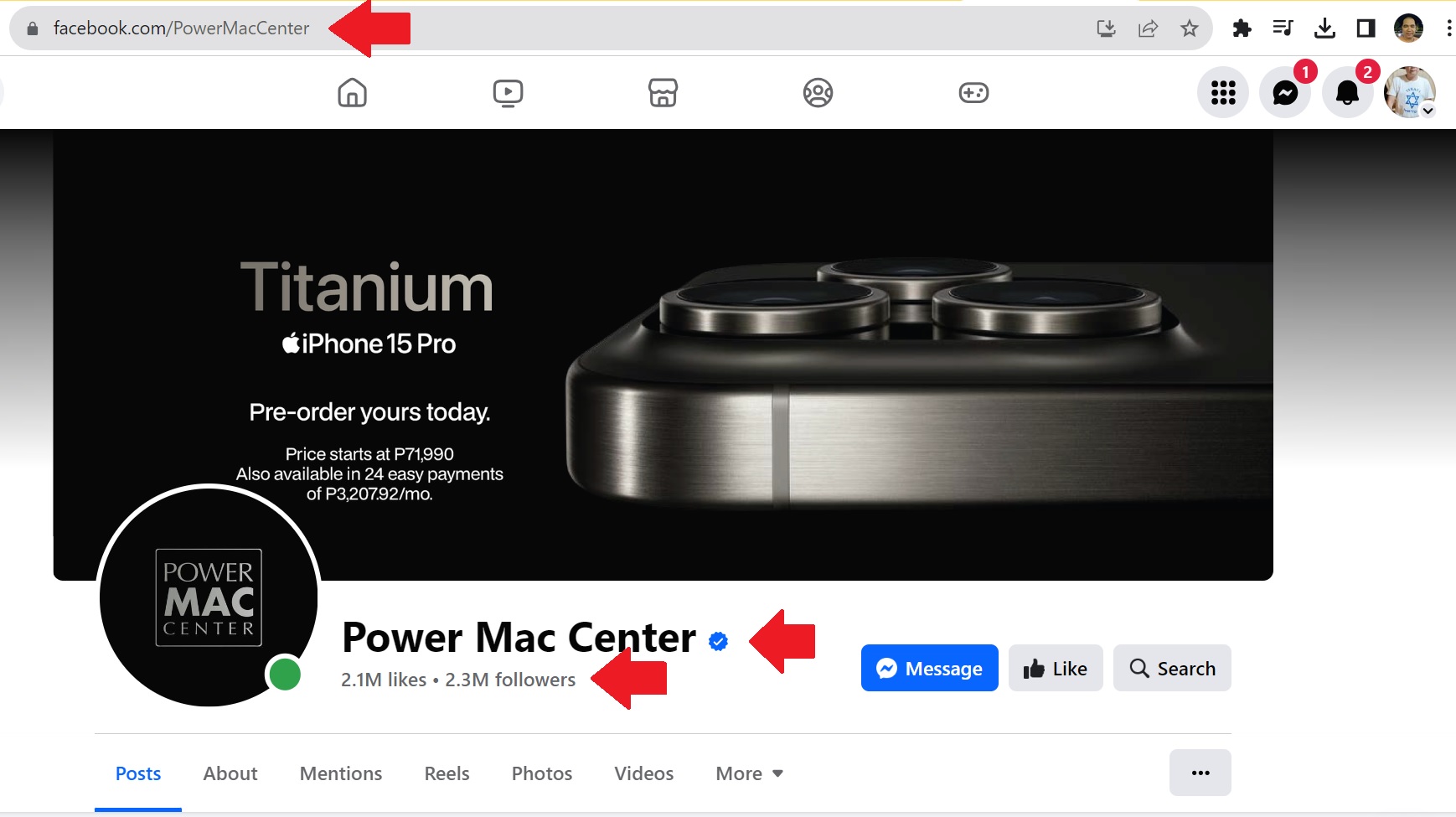Beware of fake Power Mac Center Facebook accounts
As fake Power Mac Center pages continue promoting phishing links, users are at risk. Learn to identify these counterfeit pages and protect your personal information on Facebook
At A Glance
- Fake Power Mac Center Facebook accounts and pages are distributing phishing links to unsuspecting users, despite warnings from the legitimate Power Mac Center account.
- Despite going against their Community Standards, Facebook permits these fake Power Mac Center pages to remain active, primarily because these imposters pay to promote their posts, posing a potential conflict of interest.
- These counterfeit accounts lure users by offering Apple products at unbelievably low prices and urging them to click on links for payments, which redirect to phishing sites designed to steal personal and financial details.
- Users can protect themselves by checking for the blue verification checkmark next to an account or page name on Facebook, being skeptical of too-good-to-be-true deals, and always confirming the authenticity of any dubious page with the legitimate Power Mac Center.
- If someone has engaged with or made payments to these fake accounts, it's vital to change their Facebook password, alert their bank, report the counterfeit page to Facebook, and practice caution against potential phishing threats in the future.
Fake Power Mac Center Facebook accounts and pages continue to serve phishing links to users despite a warning from the legitimate Power Mac Center account. This is a serious issue, as phishing links can be used to steal personal information, such as credit card numbers and passwords. It is essential for users to be aware of this threat and to be careful about what links they click on. Facebook Help Center says, "Profiles and Pages that impersonate other people go against our Community Standards and aren't allowed on Facebook." Facebook allows these fake Power Mac Center pages to remain active because they pay to promote their posts to targeted users. This is an apparent conflict of interest, and it puts users at risk.

These fake accounts often offer low prices on Apple products and ask users to click on links to make payments. However, these links lead to phishing sites that can steal users' personal and financial information.
Here are some tips to help you identify fake Power Mac Center accounts and pages on Facebook:
Check the account or page's name and profile picture.
- Look for the blue checkmark next to the account or page's name. This checkmark indicates that Facebook has verified the account or page.
- Be wary of any account or page that offers low prices on Apple products or asks you to click on links to make payments.
- If you need clarification on an account or page, contact Power Mac Center to verify its authenticity.
If you have interacted, sent payment or ordered from a fake Power Mac Center account or page, you should immediately change your Facebook password and contact your bank to inform them of any suspicious activity. You should also report the fake account or page to Facebook.
Here are some tips to help you avoid phishing scams:
- Do not click on links in emails or messages from unknown senders.
- If you receive an email or message from a company you know, hover over the link before clicking on it to ensure that it leads to the company's legitimate website.
- Be wary of any website that asks you to enter your personal or financial information.
- If you need a website clarification, you can contact the company directly to verify its authenticity.